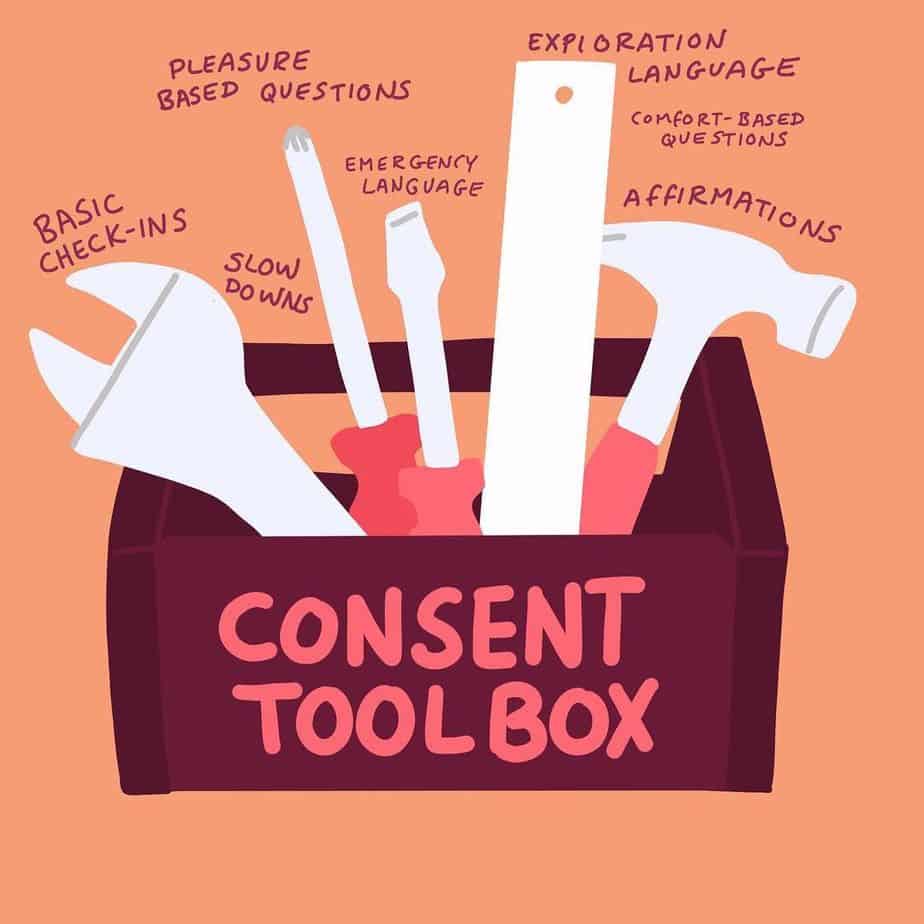With the rise of the #MeToo movement, one other topic that has been brought into discussion on a global level is consent. So what is consent? Why are people talking about it now and why have they not before, especially in our part of the world? Let’s dive right in!

What Is Consent?
Simply put, consent is the consensual voluntary involvement of two individuals in any sort of sexual activity without any of them being pressurised or coerced into it. The conflicting understanding of the definition of consent and that of assault and/or rape has sparked a big debate about the topic worldwide.
Consent Is
Clear: There is simply no room for ambiguity. If there is any doubt, there is no consent. Silence is NOT consent! And assuming the existence of a consent is not consent either.
Ongoing: It is important to remember that consent should be there through the entirety of any encounter and that consent can be withdrawn at any stage; the other partner is responsible to comply with this.
Coherent: Each individual involved should be in their senses and have the ability to express consent. If they are incapable to do so, consent does not exist.
Voluntary: Consent should be backed by free will and not be the result of any sort of coercion. None of the partners should be obliged to be involved in anything. In a relationship, if any partner overpowers the other to force them into anything, it does not qualify as consent.
Consent is required for all, including those who are in committed relationships and are married. Any sort of activity that does not include all four elements of consent is equivalent to rape or sexual assault, and is a crime. Forced sexual activity without any sort of violence, even in a relationship is still recognised as assault.
Why Do People Fail To Understand Consent?
Lack of SexEd
Due to cultural factors and societal norms, sex-ed if not included in curriculums; in fact, it is often deemed to have a bad influence on children. This leads to the internet becoming their source of unsolicited information. As for those who lack knowledge, they fail to understand the consequences of their actions or their right to speak up about those of others.
Not having ‘The Talk’
The conversation between parents and their children is still taboo. The very concept of having such a conversation is deemed indecent, and it results in the children not understanding the consequences of the way they treat their partners.
Conversational Gap
The media fails to highlight the need for this conversation and that too closes another door towards understanding the importance of consent.
Belief Stigmas
In a committed relationship, the relationship itself is deemed to be equivalent to permanent consent. Whereas in real life, several reasons could be responsible for why a partner may not wish to indulge in something at a given time. The very idea that being in a relationship makes one lose their right to object towards anything, is problematic.

What Should You Do?
Obtain consent before initiating intimacy
Check for signs and always ask them verbally if they are willing to go any further. Body language and words are both important. If your partner is hesitant to say anything, make them comfortable enough to be vocal.
Look for signs of discomfort
If your partner is not happily involved, is distracted or disturbed, or seems to be complying with your desire out of courtesy – stop.
Understand your right to say no
If you are not ready for anything and do not want to go ahead with it, understand that you have a right to stop your partner. Do not feel pressured to continue with anything.
Refrain from saying anything that sounds pressurising
Even if it’s not the intent, anything uttered can sound like an attempt to guilt-trip or manipulate the other, so be conscious of the words you use.
Understand that consent once does not mean consent forever
Even if you are in a committed relationship, consent can be affected by several factors. It is okay for you or your partner to not be willing to get intimate – a relationship is not a binding contract of consent. Instead, you should have such a level of understanding that you can be honest about how you feel.










What do you think?
You must be logged in to post a comment.